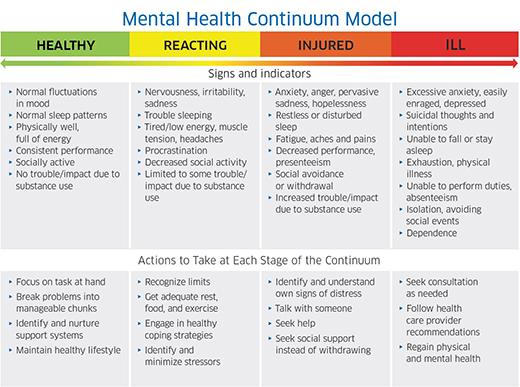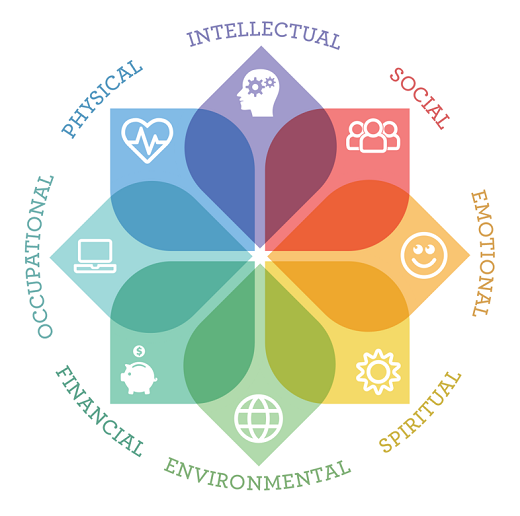Posted on: January 26, 2022
*Disclaimer: This article is not a substitute for professional medical advice, diagnosis or treatment. If you are in distress, text WELLNESS to 741741 at any time. This confidential Crisis Text Line connects you with a Crisis Responder.
Hands up if you're feeling the weight of COVID, literal or figurative. Yah, me too. Things are going fine, but not as thriving compared to non-pandemic times (remember those…?). When I'm feeling this way I take pause and think about how I'm doing, and those around me are doing too.
The end of January is a good time to turn our attention to mental health. It could be the post-holiday blues (January 17 was Blue Monday), or the annual Bell Let's Talk Day. The latter is recognized on January 26, 2022, with the theme “Supporting ourselves and each other." But how do we do this in light of the current (and painfully ongoing) restrictions? Some thoughts…
Thought 1: Mental health is not binary

Mental health is not all or nothing – it fluctuates along a continuum. As demonstrated in the Mental Health Continuum Model, how we're doing depends on the challenges we face. It can change by the hour, day, week and year. Of course we'll experience ups and downs, stress, and low and high moods. These emotions are part of the human experience and our reactions/responses can range anywhere along this continuum. Check in with how you're feeling (try a HeretoHelp Screening Test) and take steps within your control to move into a healthier state of mind. Click on image below for larger version.
Thought 2: There are multiple dimensions of well-being

Our environment influences our behaviours, experiences, and overall health and well-being. Many dimensions impact our overall state of mind (see image), and each of these dimensions can be a source of enjoyment or distress and can impact any area of health, especially mental health.
What areas in your life provide enjoyment and distress? When can you take control, and when can you go? When can you practice gratitude and acceptance, and when do you need courage to take action? Some programs offered through Canadian Mental Health Association may be helpful to help you thrive:
Thought 3: It takes time, practice and more time
Like our physical health, there is no quick way to be constantly flourishing. Small, gradual and consistent actions are key to managing our mental health. I like to think of health as a journey, not a destination, and achieving good health requires action, patience, time and persistence.
Simon Sinek did a short video on the difference between intensity versus consistency and how both have a place. When it comes to health, consistent actions will make the biggest difference (daily tooth brushing, for example). And of fundamental importance are the relationships that we build gradually by being present in a conversation and showing genuine curiosity to understand the experience of another.
Thought 4: How we can support each other
Let's create space to speak about mental health. Some ideas for conversation starters below are adapted from the Canadian Mental Health Association training on crisis response and caring for others. You could say things like:
- “I've noticed that…is there anything you want to share?"
- “It sounds like…. is that right?"
- "It's understandable that you feel this way. Has anything helped in the past?"
- "What is one thing you could do to feel better?"
- “How are you managing today?"
- “I understand if you need space. I am here when you need anything".
Final thought
We all struggle sometimes. You may never truly know what someone is facing or what their situation is, even if you know them. So be kind, be caring and have compassion for yourself and others.